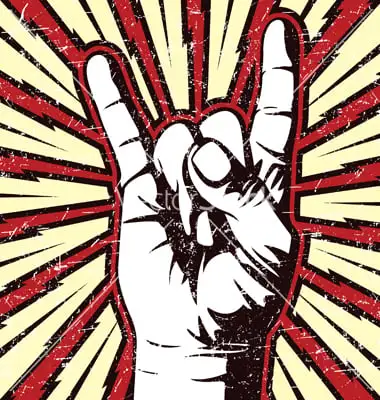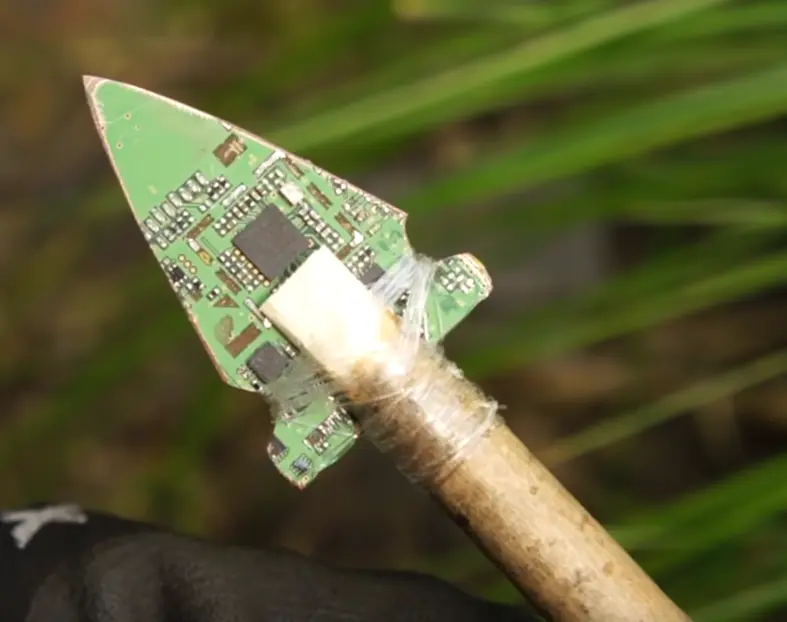Racism, sexism and all the various other “hate these people” isms and phobias are arguably methods for expressing and rationalizing anger. And they’re bad. But what’s a good way?
Once a therapist told me that a lot of the time anger is a secondary emotion; that is, it’s an emotion that comes out of another emotion.
So you don’t necessarily get angry out of nothing, but you get angry because you’re scared, or disappointed, or you feel wronged, or something else.
So their recommendation was to identify the emotion that’s making you angry, and express/rationalize that instead.
I get angry because of frustration about things beyond my control that impact me negatively and can’t simply be ignored. Knowing that extra step is great and all, but doesn’t reduce the frustration or the anger. I’m sure that identifying the difference is helpful to some people who can ignore or address the actual cause of their anger.
Note: I don’t get angry about frustrating things that I can do something about, or can be ignored.
deleted by creator
As a teen, I would consciously turn hurt into hate to avoid it. I was emotionally aware enough to know that I was running from it, but not emotionally aware enough to confront it. Therapy works, folks.
Excuse me, but sometimes, I just want to be angry and not “rationalize the causes of my anger”. I think it’s fully okay to be pissed about something and wanting to vocalize your anger without immediately neutering it by “expressing” the thing that made you angry instead. I would even say that trying to extinguish your emotions constantly will cause you to explode like a pressure cooker one day. You are just invalidating your own emotional reaction. Same thing applies when someone hurts me. You hurt me, goddamn it, I am gonna tell you why I got hurt, but most importantly, I am going to express how much I got hurt.
So if someone you love tells you if you want to have good job prospects you shouldn’t get a face tattoo, it’s okay to get angry at them right away because they hurt your feelings?
I think the point here is people get angry at stuff all the time that they shouldn’t be angry at. Helpful advice, someone pulling in front of them in traffic, online comments disagreeing with them, etc. it’s good to make sure you understand why you’re angry, or else you’re just blind.
A lot of people might be angry about the face tattoo comment, and leave it at “the other person is being mean / closed minded”, then proceed to go and get one, then continue to be angry the rest of their lives when they can’t get a job.
Reflecting on things in general, especially emotion, means you grow. It’s self education.
Usually it’s my own stupidity, clumsiness, dumb decisions, or ignorance, and knowing that just makes me more angry :/
And it’s good to recognize that! It means now you know to work on self-compassion (which is really hard but really worth doing)
Agreed. Say, past trauma. Leading to anxiety, anger and etc.
I don’t put much hope rational analysis.
Maybe solitude and meditation. Maybe a month in the forest with friends and a big bag of shrooms.
Heavy metal. Literally. Singing, listening, playing, headbanging to heavy metal. Just like listening to sad music helps with sadness because it provides a safe outlet for emotion. So does engaging with angry music. Some of the mildest, most accepting and emotionally well adjusted people I’ve met were metal heads. And they were social activists as well.
I combine two of the suggestions in this post.
I blow off steam by simultaneously listening to, and lifting, heavy metal.
You’ll probably enjoy this
https://www.uq.edu.au/news/article/2015/06/head-banging-tunes-can-have-same-effect-warm-hug
There have been a few similar studies that support this. Largely that it has a catharsis effect to let someone else be angry for you.
I’ve never found a better song for this than Killing in the Name by Rage Against the Machine.
Listening to sad music can cause a spiral. Absolutely do not recommend unless you’ve specifically setup a playlist to transition emotionally and at least looked up how to do so in a healthy manner. (Like don’t go from sad songs to rage metal.)
Not all metal is angry…
They didn’t say it was.
They implied it, but yeah, I was probably reading into it too much…
I think you mean you think they implied it. :P
Implied, ABCDE? Or implode?
Exercise and processing emotion without letting yourself explode from it. Then, assess how you felt and determine how to avoid the situation in the future. If possible, talk to the person or people who you would like to build a better, healthier relationship with. Or, leave that portion of your life if possible, if it is truly toxic.
Kill pixels and destroy the pixelated worlds of video games and then create a paradise in it.
What, and let those video games turn me into a serial killer?
I’m convinced that there is around 50% of the general adult population that has zero emotional intelligence and lives in a state of emotional ping pong. Just raw emotional energy that is entirely at the whim of whatever happens to be in their line of sight.
Agreed. Like a scrap of paper, slave to every breeze.
Are you saying that sometimes you feel like a plastic bag?
Swearing. This is the purpose of bad words.
What works for me :
-
I remove myself from the situation that caused the anger.
-
I let myself live the anger for a minute or two, or a bit more if needed.
-
When the anger is gone, I identify what emotion is the cause of anger. Anger is 99% a reaction to a negative emotion.
-
I say outloud to myself the reason of my anger. Otherwise, I feel like the anger is pent-up.
-
If my anger was directed at someone, I apologize and explain why I was angry.
-
Finally, I reflect on the situation and the emotions I experienced. Sometimes it’s 30 seconds, sometimes it’s a few days, depending on the gravity of the situation. By understanding what caused the negative emotions, I can handle it better in the future.
This is a nice way to look at anger. Kind of similar to something my therapist said a long time ago. #3 specifically is a huge one.
I figured out that my issue was that I wasn’t able to identify the emotions I had.
I worked with my therapist to learn to catch myself when I get angry, then I learned to accept the anger and finally identify the negative emotion.
By doing that, I don’t hold on to that anger most of the time, and when I do, it’s a lot shorter.
And by identifying the underlying emotion, I can live the emotion and then redirect it. Overall, it made a big difference in my life.
I will always be stuck with anger as my first reaction to a negative emotion. But it is a lot healthier now.
Removed by mod
This is why it is important to learn to identify the smaller frustrations to stop them from building up. Smaller frustrations are easier to deal with, so it is a good idea to take a minute or two to just deal with them right when they happen. It will stop most of the bigger outbursts.
Removed by mod
Same for me. It works, and I can just vent to myself and move on with my life.
But sometimes, the big outbursts are inevitable considering the context. But that’s life.
Removed by mod
-
This is a question that should be asked and learned in school. Maybe then we wouldn’t have so many broken people.
Ever notice how no schools have any emotional intelligence lessons whatsoever?
It’s all focused on learning shit for work. Not much for handling life issues, that happens to everyone, all the time.
Ever notice how no schools have any emotional intelligence lessons whatsoever?
I don’t remember it being a thing when I was a kid but both my kids have had classes that teach these things.
I also remember I was having issues with a kid in school and the school counselor sat us down and talked to us about anger and emotions, etc. I think we had a short daily session for a few weeks. This was in the 90s.
The American education is state funded daycare with forced learning about dry topics, so we don’t even remember 90% of what we learned. People talk about wishing they learned about taxes and resumes etc in school. Those were Freshman and Sophomore level electives for us in a small town in the early 00s.
Yeah I think we had it also, but today’s kids don’t seem to have it anymore…
Dunno where you live. Mine both did in grade school.
Conversation with the person you’re angry at if they’re available and willing to engage in good faith.
Otherwise you’re going to need an outlet like music, crying, video games, crying, outdoor meditation, crying, throwing a half full plastic water bottle at a metal dumpster until your worn out, crying, getting active in politics, or … Crying.
Seriously we get told we’re not allowed to cry and that’s bullshit. We have a built in stress response system. Go have a good cry and then think about long term solutions to whatever is making you angry. Someone is ignoring you? Disassociate from them. (Not from yourself, that way lies much therapy) Someone is violating your rights? Call the government. It’s the government doing it? Vote and protest.
Dealing with anger is always a multi step thing. The worst thing you can do is meditate and then nothing else. All you’ve done is escaped the moment. It will come back.
40% of time I get angry there is absolutely nothing to do, 55% of the time it isn’t worth doing anything, and that 5% of the time really maybe only should do something.
So I would disagree and say that meditating and doing nothing is absolutely the best thing to do almost all of the time.
Sometimes that long term option is to do nothing. The important thing is to process it clearly and without catastrophizing it. I didn’t mean to make anyone think there had to be a physical action to take or else.
Weaponized positivity.
Hello fellow service worker
😃🤜🥴
Punk rock karaoke
And mosh pits
Beating your partner. No, wait… Shooting up a bunch of strangers. No, that’s still not right.
Fuck, living in America has deprived me of the ability to answer this question correctly. (this is satire. see my other comment.)
Using it to fuel the motivation to change things. Get mad that you tripped over a cable? Time to finally do something about cable management. Is your boss or your job making you furious? Take the time to explore new opportunities. Pissed at how politics are going? Find out who represents your district and write them an email about the topic and make your voice heard. Anger can be a good thing when it makes someone get off their butt and make a change for the better.
Mutual aid. Helping people directly defuses a lot.
Weightlifting. Squatting is like screaming into a pillow but with gainz.
Get some time and space to yourself, 10 to 30 minutes, depending on the complexity of the situation. Think about exactly who/what you are angry with, and why (including yourself*). Don’t worry about solving it, just get it front and center in your mind. Pile up a huge number of couch cushions. Beat the ever livin’ fuck out of them with your fists and feet until you break down or wear yourself out. Repeat as necessary.
*Note: One of the reasons some emotional things never die is because we try to solve them without including ourselves in the equation: we see forgiveness is needed but we don’t include ourselves, for example, or guilt needs addressing but we don’t want to measure our own part in it because someone else’s betrayal was so overwhelming that it’s almost unbearable to think of the self as participatory in that destruction. Yet those are examples of exactly the kind of inner situation that keep us stuck in unhealthy emotional patterns. If you really want to get out of an emotional trap, including anger that doesn’t quit, and you think you’ve tried everything, try specifically looking for exactly what you don’t want to see about your own part in it.














